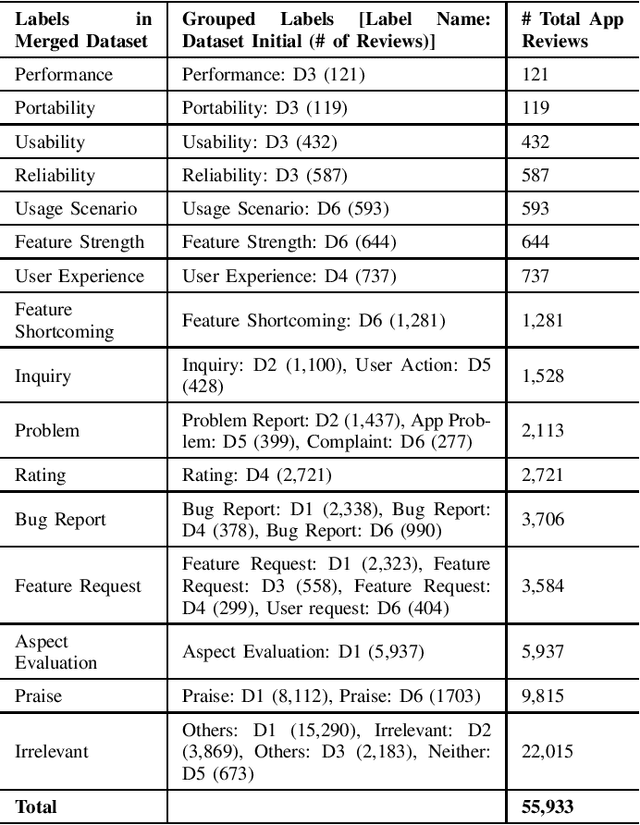Evaluating Pre-Trained Models for User Feedback Analysis in Software Engineering: A Study on Classification of App-Reviews
Paper and Code
Apr 23, 2021
Context: Mobile app reviews written by users on app stores or social media are significant resources for app developers.Analyzing app reviews have proved to be useful for many areas of software engineering (e.g., requirement engineering, testing). Automatic classification of app reviews requires extensive efforts to manually curate a labeled dataset. When the classification purpose changes (e.g. identifying bugs versus usability issues or sentiment), new datasets should be labeled, which prevents the extensibility of the developed models for new desired classes/tasks in practice. Recent pre-trained neural language models (PTM) are trained on large corpora in an unsupervised manner and have found success in solving similar Natural Language Processing problems. However, the applicability of PTMs is not explored for app review classification Objective: We investigate the benefits of PTMs for app review classification compared to the existing models, as well as the transferability of PTMs in multiple settings. Method: We empirically study the accuracy and time efficiency of PTMs compared to prior approaches using six datasets from literature. In addition, we investigate the performance of the PTMs trained on app reviews (i.e. domain-specific PTMs) . We set up different studies to evaluate PTMs in multiple settings: binary vs. multi-class classification, zero-shot classification (when new labels are introduced to the model), multi-task setting, and classification of reviews from different resources. The datasets are manually labeled app review datasets from Google Play Store, Apple App Store, and Twitter data. In all cases, Micro and Macro Precision, Recall, and F1-scores will be used and we will report the time required for training and prediction with the models.
 Add to Chrome
Add to Chrome Add to Firefox
Add to Firefox Add to Edge
Add to Edge